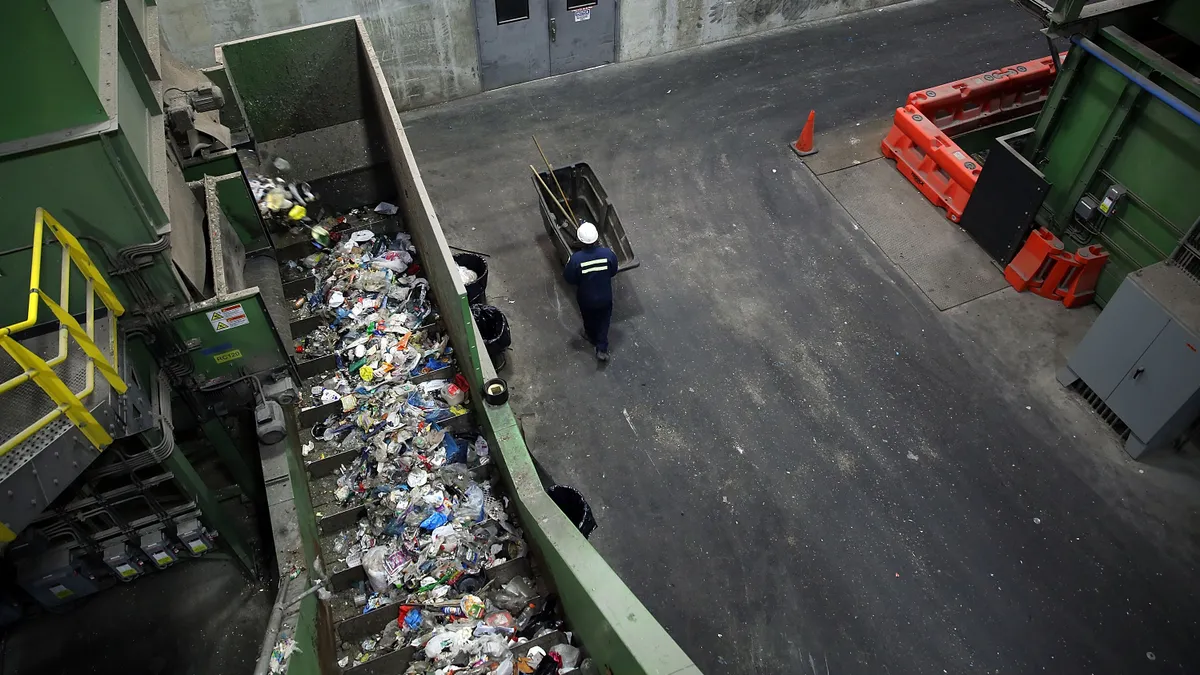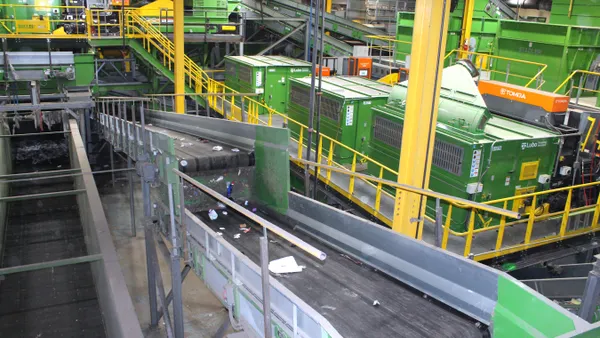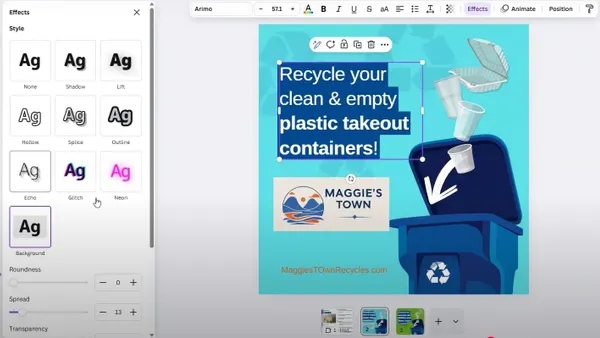After several years of increased recycled commodities earnings — and a recent peak in commodity prices heading into Q1 2022 — major waste companies saw a decline in recycling revenue during the second half of 2022.
Waste companies have faced complex market, inflation and labor challenges since the COVID-19 pandemic first began in 2020. Despite the headwinds, revenues from recycling generally increased for WM, Republic Services and Waste Connections between 2020 and the second half of 2021.
Companies’ recycling divisions were particularly robust in late 2021 due to soaring commodity prices. But by mid-to late 2022, falling recycled commodity prices, particularly for OCC and mixed paper, led to lackluster end-of-year recycling earnings. In Q4 earnings calls, several company executives said they expect prices to remain flat or make a very minor price recovery. Companies have also reset contract structures in recent years to be based primarily on processing fees rather than commodity revenue, a move that likely lessened the impact of steep commodity price declines.
In the last few years, companies have announced major MRF investments aimed at lowering labor costs while maximizing profits from recyclables. That work will continue in 2023, with companies like WM, Republic, Waste Connections and Casella Waste Systems touting major recycling-related capital expenditures.
Catch up on the latest recycling statistics and commentary from fourth quarter and full-year earnings reports:
Waste company earnings from recycling
WM
- WM’s average commodity price per ton was $47 in Q4. The company plans automation investments that could boost prices with cleaner material.
- During its Jan. 31 earnings call, WM outlined its plan for “entering more new markets and increasing the scope of already-announced projects,” according to an investor presentation. That includes a total of about $1 billion in MRF spending between 2022 and 2026, up $200 million from its original estimated capital expenditures. That funding will go toward four new automation projects and two “new market projects.” Other plans include expanding municipal offerings to recover additional commodities.
- WM plans to spend about $125 million to expand plastic film recycling systems, which it’s undertaking after the acquisition of Avangard Innovative. WM will host a webinar April 5 to release more details on its planned recycling investments.
Republic Services
- Republic reported its average recycled commodity price per ton was $170 in 2022, down about $17 per ton from 2021. A drop in OCC prices contributed to the difference, executives said. Though commodity prices are “temporarily depressed” due to what CFO Brian DelGhiaccio attributed to “a global supply and demand imbalance,” he believes prices will recover later in the year.
- Republic’s recycling business earned $58.7 million in Q4, down 47% year over year. Full-year 2022 recycling revenues were about $359 million, down 15% year over year.
- Republic touted work on its plastics recycling plants, which CEO John Vander Ark said could be a $250 million revenue business by 2025. The first plant, scheduled to open in Las Vegas by the end of the year, will process more than 100 million pounds of recycled plastic a year. An additional facility in the Midwest could start operations in 2024, and two others are also in the works.
Waste Connections
- Waste Connections’ recycling revenue in Q4 was about $26 million, down 63% year over year. It made $205 million in recycling revenue in 2022.
- CFO Mary Anne Whitney expects to see prices slightly rebound as the year goes on. OCC prices, which experienced a steep price drop between Q3 and Q4, have stayed “relatively stable” since November.
- CEO Worthing Jackman noted that the company’s investment in MRF robotics — it recently installed its 50th unit — has allowed the company to fetch higher prices for cleaner commodities. “We have gotten the benefit of much higher quality of product on the outbound, and the pricing we're getting … has been a huge benefit for us and the ability to move our product.”
GFL Environmental
- Commodity prices will remain a “material headwind” in 2023, CFO Luke Pelosi said during the company’s recent earnings call. GFL expects lower commodity prices will slightly impact overall revenue growth. “We’ve assumed no improvement in the current levels,” he said.
- GFL sees automating and growing its MRF network as key to its long-term financial health. A MRF in the Midwest is expected to come online sometime this year, with another in Ontario in the planning stages.
Casella Waste Systems
- Casella’s Resource Solutions sector, which includes recycling, experienced a 10.6% increase in revenues year over year. However, that success was partially offset by lower commodity prices. The average combined revenue per ton for paper, plastic, metals and aluminum for Q4 was down 67% year over year, going from about $125 to $59 a ton.
- Commodity prices began stabilizing in December and saw a modest rise in the beginning of 2023. “We are now sitting ahead of our budget in the month of January,” said Jason Mead, Casella’s senior vice president of finance, during the earnings call.
- Headwinds from commodities were “slightly greater than anticipated” in Q4, CEO John Casella said during the earnings call. It’s partly due to several recycling contracts the company acquired in the past few years that do not yet have “monitored risk mitigation features,” he added. As the contracts reset, “we intend to incorporate these mechanisms as it relates to early 2023.”
- Casella also touted a $20 million investment to upgrade its Boston MRF, which could be completed by mid-year. The company sees the investment in robotics equipment as a way to boost capacity by 35% while reducing labor costs.
Stericycle
- Though most companies reported headwinds from commodity values, Stericycle’s secure information destruction sector benefited from overall stable sorted office paper prices in Q4, CEO Cindy Miller said during the Feb. 23 earnings call.
- Recycled paper contributed about $4.6 million more than in the fourth quarter of 2021, she said. However, global recycled paper volumes were flat year over year.











